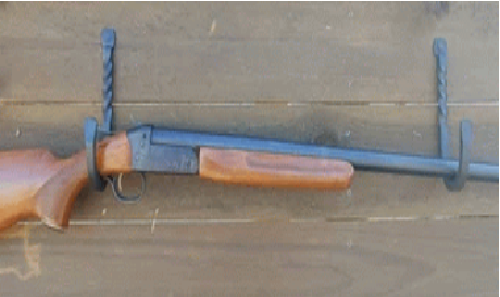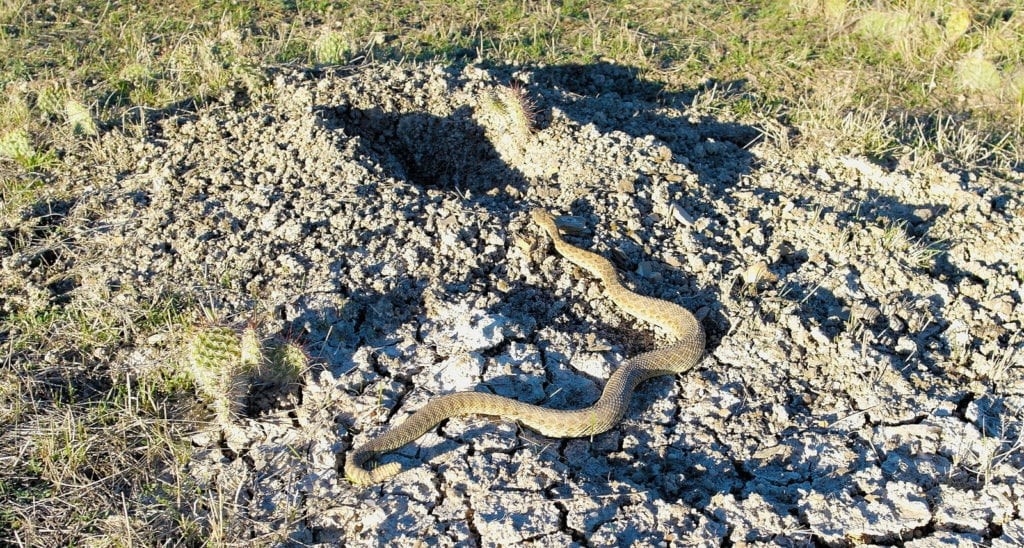Granddad Herman and Grandma Augusta (Gus to her friends) Witte left the tame but overcrowded civilization of Crete in southeast Nebraska and moved their two sons and three daughters and a baby son in a new Ford Model A to the Badlands of southwest South Dakota in 1928. That was a major change and a long way from where they both grew up. They intended to avoid bill collectors and the problems of family. They moved so far away it would take a month for mail to arrive.

Granddad had been energetic and strong and had learned to farm along with the rest of his family in the community of their German ancestry. He acquired a very fine pair of draft horses and raised good crops and accumulated some money. The prevailing social ethic obliged him to lend money to in-laws who often failed in their ventures and left Granddad holding the bag. Then, his best team of horses died from some ailment. He sold everything he had, paid off the mortgages and put the rest of the money in his pocket and “headed West, Young Man!”
They also gave up the old familiar environment. Mother Nature had adapted to a different climate. (Contrary to the beautiful farming country around Crete, Nebraska, I think of the Badlands as barren. I tell people, “The only thing that could grow there was cactus and the rattlesnakes that learned to eat it.”)
Like Mother Nature, the family had to adjust too. But to what? Who knew? Who could explain the differences? None of the locals had ever been that far from home. Four hundred miles was a long way. Only trains could go that far and there was only one train and it did not go that way. Besides, who on the Pine Ridge Indian Reservation would have any reason to go to Crete, Nebraska? There was no one who could possibly explain the differences.
Herman was strong and brash. Augusta was logical and sensible. Together they made a great team. They could conquer any challenge. And keep the babies fed and clothed.
The Reservation was leasing land for a very reasonable price, it seemed, and one rental came with a house. A log house. And it had its own spring fed well. White River watered the livestock and Grass Creek drained a rolling hill side, good for farming wheat, it seemed. A pretty good trail crossed Grass Creek and crossed clear cool White River a little farther west, at Ole Man Redfish’s Crossing just above where Grass Creek emptied its chalky white floodwaters. The log house was a mansion compared to the typical prairie home constructed of bricks of sod. It even had a couple of windows and a screen door. The screen door was an essential, for safety.
The life was not all a bed of roses in the Badlands. Unlike back home, trees do not grow well in the Badlands. Poor topsoil. Minimal rain. Cold winters. Hot summers. Prairie fires. The soil could produce grass, usually short, curly, tough, buffalo grass. Cattle and sheep thrived on the grass. Winter snows would bury the grass, so livestock producers bought high protein hay in 100-pound bags of alfalfa and grains compressed into hard ice cube sized cake to supplement the hay harvested all summer long from small meadows along Wounded Knee Creek a few miles away.
Granddad had sworn to never rely on horses for power after his beautiful favorite team of horses died from a bag of spoiled oats. Being a farmer by upbringing, he bought a tractor, a lumbering giant by today’s standards, of course, but with miniscule power by today’s standards. But much more powerful than two workhorses.
The weather generally allowed at least some production of winter wheat, planted in the fall and harvested mid-July next summer. Strangely, the fall sprouting young wheat plants entered a protective dormancy during the winter months. When spring brought warmer days, it revived and produced several stalks and heads of wheat from the one originally planted seed. With his new tractor Granddad plowed up a quarter section of sidehill and planted wheat.
Everyone of the family worked. Granddad and his two elder sons tended the pigs and later the sheep, fixed the fence crossings after every rainstorm, cut and stacked hay, and harrowed the summer-fallow strips of unplanted ground in the wheat field. Grandma and the daughters maintained the household and preserved food. Buffalo berries, chokecherries, carrots, beets, potatoes, radishes, catfish, and venison all added to the diet. Some things could be preserved in glass Mason jars. Others could be kept if dried and then kept cool. It was a full-time job to keep the children safe and to teach them to be safe when on their own.
The darkened interior of the log house offered cool respite from the noon day sun and warmth from the chilly mists just before sunrise. Children ran happily in and out as the play and work led their bare feet through the door. The screen door, so important to bar the entrance of predatory insects like mosquitos and horseflies, was of no consequence to the children. The spring that automatically drew the door shut did its best, but inevitably dust and debris would accumulate in a little ridge formed just inside the non-existent threshold. Soon, the ridge of debris barred the door from swinging entirely shut and only by firm manipulation could the door be fully closed.
Granddad told me, years later, that he had asked the kids, repeatedly, to make sure the door was closed and latched at night. He begged them to be sure. He demanded and bellowed and cussed that they make sure the door was firmly shut before bedtime and after each trip to the outhouse. But the door was not always so surely shut.
Granddad said one day he awakened at daybreak just as he always did. It was still pretty chilly outside and the kids were sound asleep under covers in low beds or even on the floor scattered around in the one-room sod house. Just then, he heard a sound, a sound that made his blood run cold!

His eyes followed the sound to the door. A cold rattlesnake was slowly slithering through the crack of the unlatched screen door. He was not so familiar with rattlesnakes. But he had been warned by the locals. He learned a healthy respect for the harm the rattlesnake’s poisonous fangs could cause a bare leg, or to the health of a little child. Granddad did not say a word. He quietly reached above the headboard. He pulled down his double-barreled shotgun. Grandma awakened but she said nothing. He leveled the shotgun at the snake and pulled both triggers. The thunderous twin explosions blasted the rattlesnake into three pieces!
He said he never had to remind the kids to latch the screen door again.



